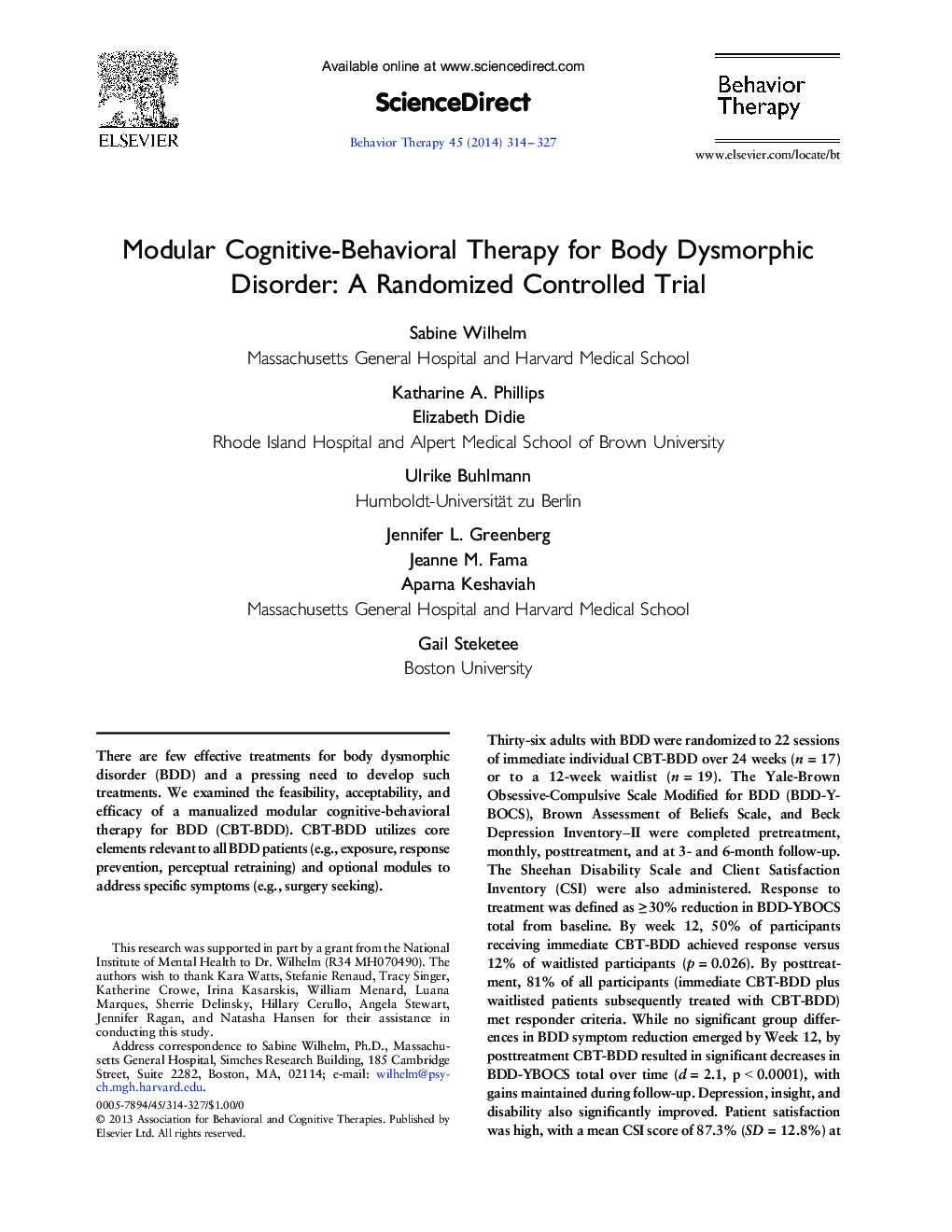| کد مقاله | کد نشریه | سال انتشار | مقاله انگلیسی | نسخه تمام متن |
|---|---|---|---|---|
| 901510 | 915872 | 2014 | 14 صفحه PDF | دانلود رایگان |
• Examined feasibility, acceptability, and treatment outcome of modular cognitive behavioral therapy for BDD (CBT-BDD) in 36 BDD patients.
• At post-treatment, BDD and related symptoms (e.g., mood) were significantly improved.
• Treatment gains were maintained at 6-month follow-up.
There are few effective treatments for body dysmorphic disorder (BDD) and a pressing need to develop such treatments. We examined the feasibility, acceptability, and efficacy of a manualized modular cognitive-behavioral therapy for BDD (CBT-BDD). CBT-BDD utilizes core elements relevant to all BDD patients (e.g., exposure, response prevention, perceptual retraining) and optional modules to address specific symptoms (e.g., surgery seeking).Thirty-six adults with BDD were randomized to 22 sessions of immediate individual CBT-BDD over 24 weeks (n = 17) or to a 12-week waitlist (n = 19). The Yale-Brown Obsessive-Compulsive Scale Modified for BDD (BDD-YBOCS), Brown Assessment of Beliefs Scale, and Beck Depression Inventory–II were completed pretreatment, monthly, posttreatment, and at 3- and 6-month follow-up. The Sheehan Disability Scale and Client Satisfaction Inventory (CSI) were also administered. Response to treatment was defined as ≥ 30% reduction in BDD-YBOCS total from baseline. By week 12, 50% of participants receiving immediate CBT-BDD achieved response versus 12% of waitlisted participants (p = 0.026). By posttreatment, 81% of all participants (immediate CBT-BDD plus waitlisted patients subsequently treated with CBT-BDD) met responder criteria. While no significant group differences in BDD symptom reduction emerged by Week 12, by posttreatment CBT-BDD resulted in significant decreases in BDD-YBOCS total over time (d = 2.1, p < 0.0001), with gains maintained during follow-up. Depression, insight, and disability also significantly improved. Patient satisfaction was high, with a mean CSI score of 87.3% (SD = 12.8%) at posttreatment. CBT-BDD appears to be a feasible, acceptable, and efficacious treatment that warrants more rigorous investigation.
Journal: Behavior Therapy - Volume 45, Issue 3, May 2014, Pages 314–327
